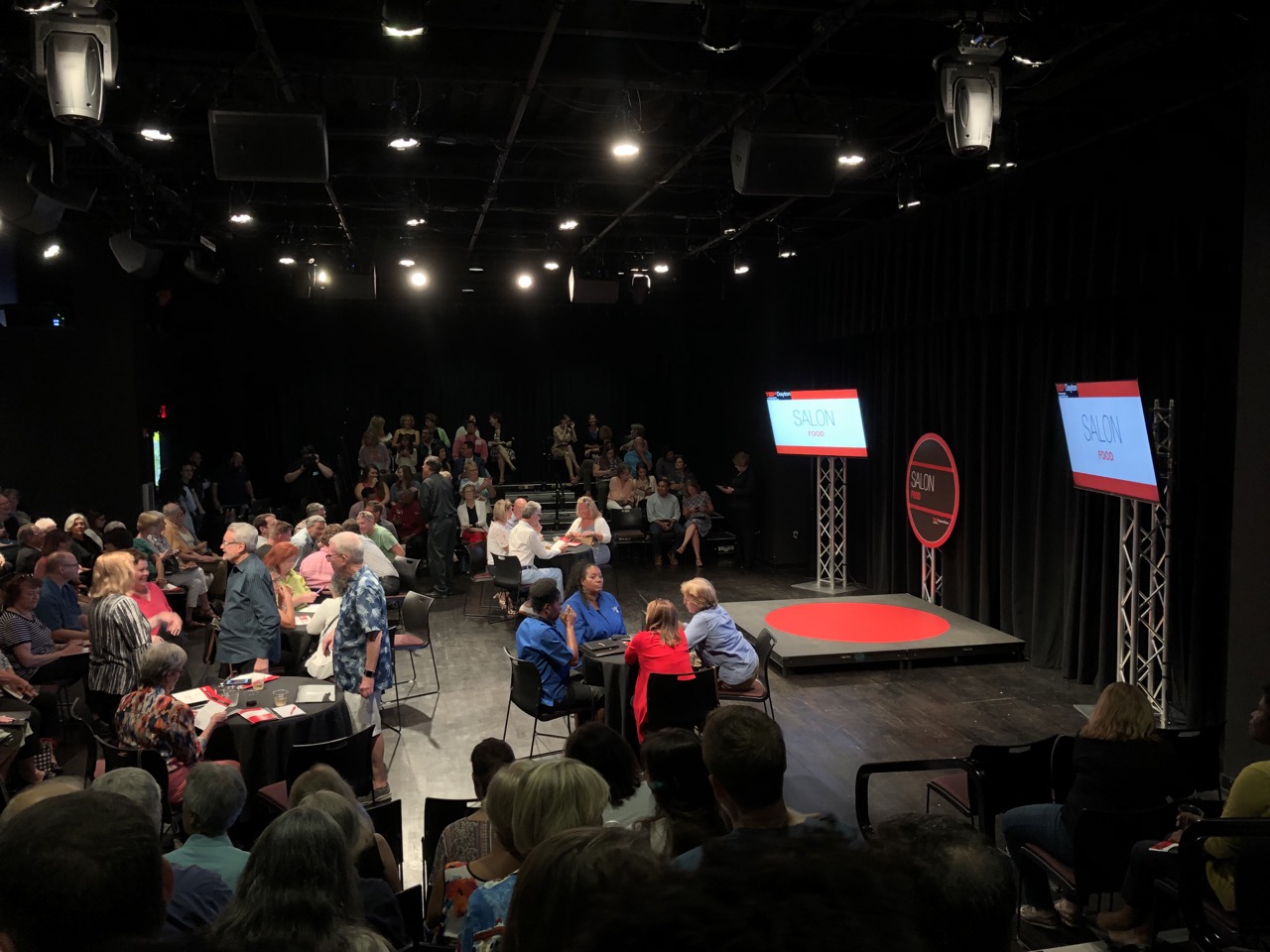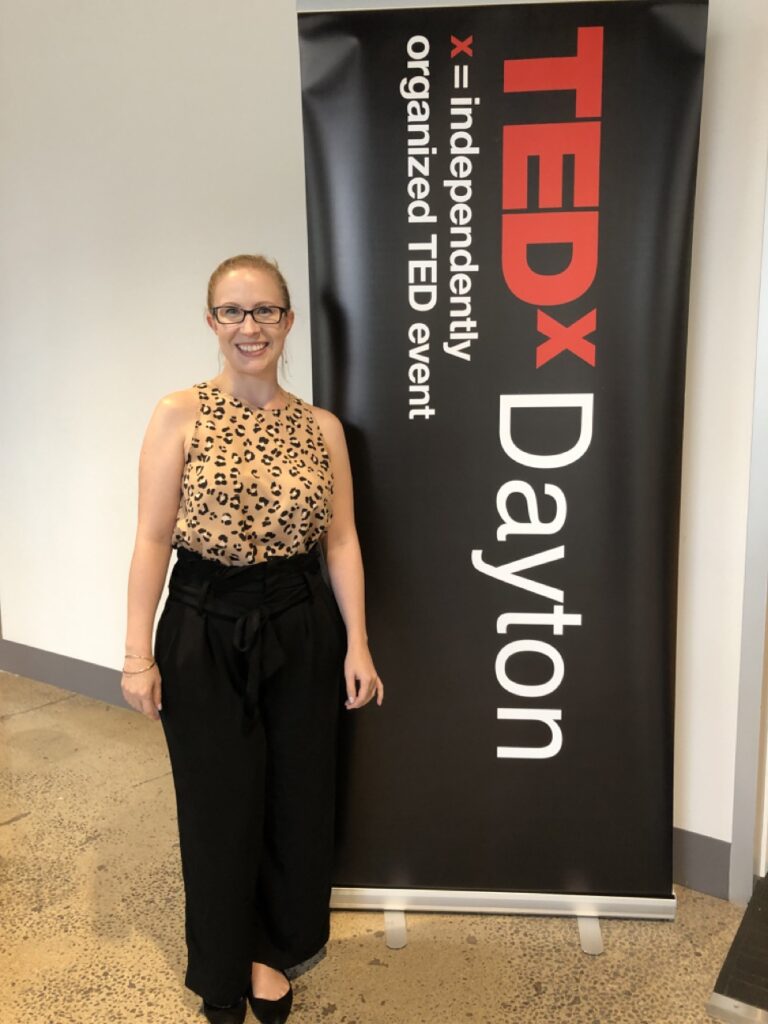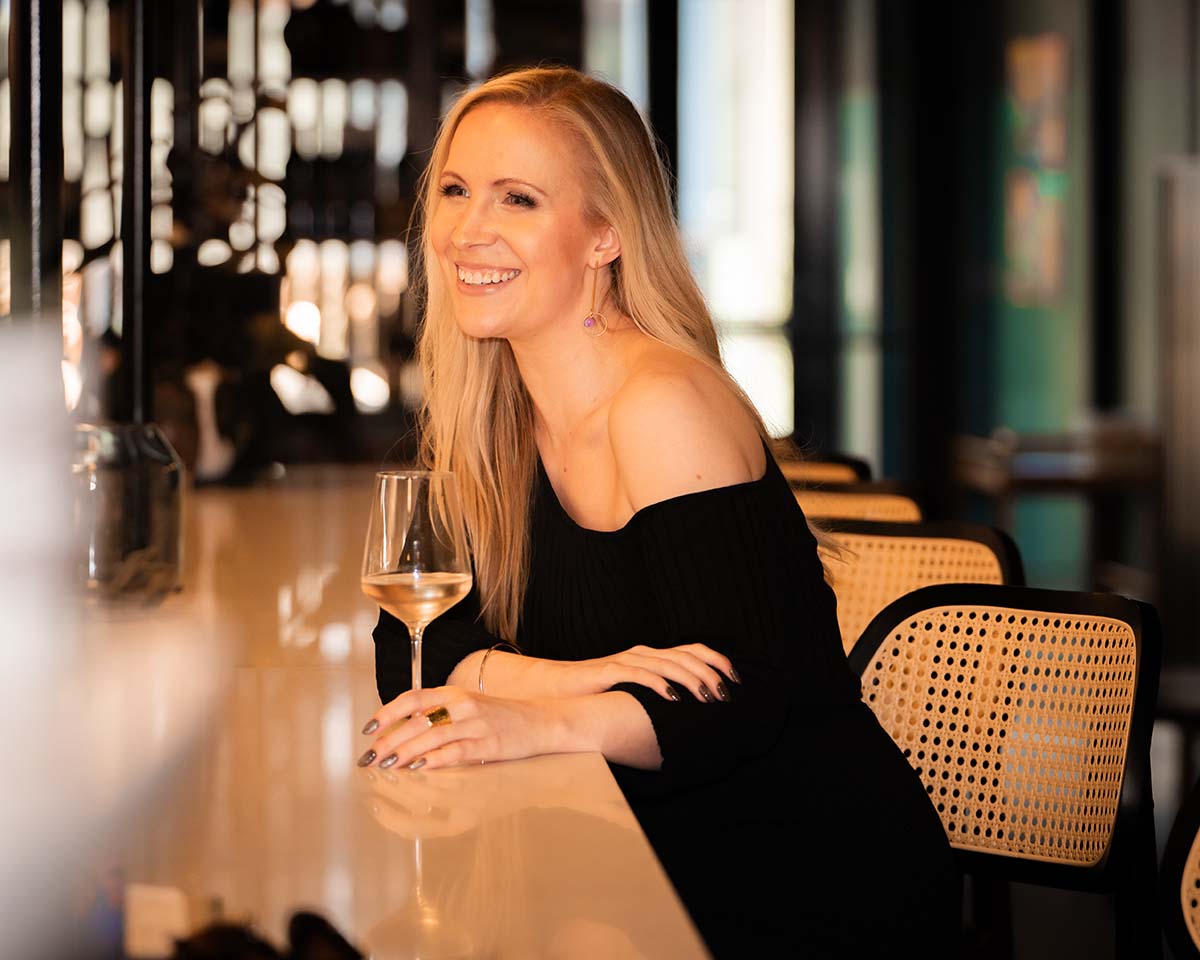
At TEDxDayton’s final Salon event of 2019, food was the topic of discussion and eight local speakers shared their ideas about what it means to them. Here are a few of the most memorable quotes from the evening.
1. Tacos = Love Notes You Can Eat
Wright State graduate student, Jazmin Perez works as a Match Support Specialist at Big Brothers Big Sisters Miami Valley but grew up working in her family’s restaurant where she loved seeing how they were able to share their Mexican culture though food. Despite working with her family in their restaurant, Perez explained that she never got much enjoyment from cooking until developing a serious relationship with her boyfriend and cooking for one another – including tacos – because “when you cook for someone it’s like saying I care about your being alive.”
2. How is Your Relationship with Food?
Rachel Riddiford, Clinical Nutrition Director for Dayton’s Children’s Hospital, explained that our relationships with food can range from abusive, such as with an eating disorder, to pleasurable, such as comfort foods. In her career and in her life, she has witnessed over and over again the complicated relationship we have with food and encourages us to “listen deeply and with great compassion” when someone explains how they feel about food. It can go a long way to helping them potentially try something new or work toward a healthier lifestyle.
3. Kitchen Islands Transformed Home Cooking
Modern kitchens are much more open than they once were and as Miami University Architecture and Interior Design professor, Mary Rogero, explains, and we have three women to thank for it. Margarete Schütte-Lihotzky was an Austrian architect who designed a kitchen in a box using the same methods used in designing manufacturing facilities, placing the focus on function and ergonomics for the first time. Betty Crocker, while not a real person, was heavily influential in the company’s focus on making baking easier and focusing on the science of baking. Julia Child invited us to watch her in the kitchen as she prepared French recipes on her kitchen island, giving rise to generations of TV cooking shows. And it’s easy to see why because, as Rogero explains, “to be in a kitchen that allows you to watch someone cook, to watch them dance through a simple meal, or sing and whistle; that’s the kind of kitchen I want to be in.”
4. It’s All about the Aroma
George M. Sideras, Corporate Executive Chef at Nestle Professional, knows a thing or two about food chemistry and explained that aromas have the ability to transport us back in time because they are so intertwined with memory. He explains that “as a chef, I can control the flavor and the aroma of food,” which really means chefs can impact so much more than the way something tastes but also possibly invoke your memories.
5. You Might be a Pineapple
Chef Thomas Johnson teaches students at his non-profit culinary arts school, Dayton Cooks, and used a pineapple as a way to describe how some people, including himself, can be much like a pineapple. He explained how some people have a sort of a tough outer layer but with a royal crown and sweet on the inside around a core of fibrous values. He assured the audience that “mistakes are opportunities for growth” so if you aren’t where you want to be right now, ride the next mistake to where you want to go.
6. Focus on Agriculture
After an eye-opening trip to Peru, University of Dayton professor, Diana Cuy Castellanos discovered a whole new way to approach food. Many of the people she encountered grow their own food for themselves and their family and there are corner marketplaces in the city selling fresh produce from the region. She explains that there are 12.9% of Americans facing food insecurity while 75% of people in US don’t consume enough fruit and vegetables. She considered that potentially the definition of food insecurity could be expanded to include a lack of access to fresh, healthy food, asking “what if we had the audacity to change the conversation from food quantity to food quality?”
7. Thank a Microorganism
While not a lot of people have tasted sauerkraut and thought ‘I want to learn to make this,’ WPAFB Mechanical Engineer and Officer, Casey Moninghoff, has dedicated quite a bit of time toward the art and science of fermentation – and believes it helped teach him patience in the process. He explains that fermentation was how people preserved food before refrigeration and has been around for a very long time, however what he calls ‘the war on bacteria’ is relatively new and already creating super, antibiotic-resistant germs. He encouraged the audience to experiment with fermentation in the future, and to get creative with the process because “the kitchen is my laboratory. […] When in doubt, make some kraut.”
8. Spend the Money to Make the Memories
Corporate Chef and Culinary Director of local grocery store chain, Dorothy Lane Market, Carrie Walters is on a quest every time she travels to find where the locals eat. She loves celebrating with good food and good friends and believes when traveling it’s a good idea to leave the peanut butter and extra granola bars at home and get out to try the street eats, the expensive restaurants, and the hard-to-find places that take a little longer to reach because you only live once. She explained that spending the extra money to travel is important because she is “on a mission to create food memories that live on” for her friends and family, and that’s worth every penny.
A version of this article was originally published on Nova Creative’s blog on August 26, 2019. TEDxDayton Salon | Food took place August 22, 2019 at the PNC Arts Annex. For more information about TEDxDayton, visit their website.




